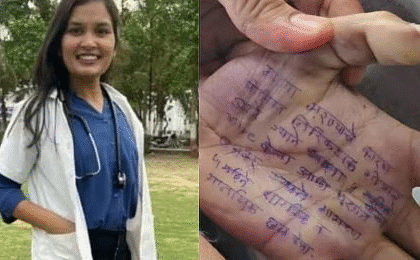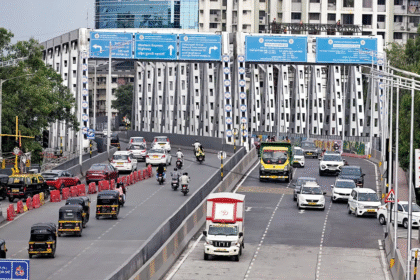Crackdown in Kashmir: 3 J&K Govt Employees Terminated, Jailed Over Alleged Terror Links
J&K Government Fires 3 Officials Over Confirmed Terror Links in Major Crackdown on Militancy Support Networks
In a decisive move underscoring the Jammu and Kashmir administration’s zero-tolerance stance on terrorism, Lieutenant Governor Manoj Sinha has ordered the dismissal of three government employees found to have direct links with Pakistan-based terrorist groups, including Lashkar-e-Taiba (LeT) and Hizb-ul-Mujahideen (HM). The action follows a rigorous security probe and signals a broader crackdown on entrenched terror support systems operating within the state apparatus.
The dismissed officials have been identified as Malik Ishfaq Naseer, a police constable; Ajaz Ahmed, a teacher in the Education Department; and Waseem Ahmad Khan, a junior assistant employed with the Government Medical College in Srinagar. All three individuals are currently incarcerated and face charges linked to terrorism, including smuggling of arms and aiding cross-border operatives.
Background: Terror Attacks and Internal Sabotage
This high-level purge follows a deadly attack in April, which claimed the lives of 26 civilians, sending shockwaves across the Union Territory and prompting authorities to reassess insider threats in critical government sectors. According to senior intelligence officials, these dismissals were preceded by an extensive investigation that exposed the employees’ long-standing association with terror outfits operating from Pakistan-Occupied Kashmir (PoK).
A security officer familiar with the probe described the revelation of active terrorists embedded in government departments as a “significant breach” and a “direct threat to national integrity.” He emphasized that the state’s machinery cannot afford to be compromised by individuals facilitating violent extremism while drawing salaries from public funds.
Malik Ishfaq Naseer: Constable Turned Terror Conduit
Among the most alarming cases is that of Malik Ishfaq Naseer, who was recruited into the Jammu and Kashmir Police in 2007. His fall into extremism came under the spotlight during a probe into an arms smuggling racket. Investigators discovered that Naseer was coordinating logistical support for LeT operatives by facilitating the movement of arms, explosives, and narcotics into Indian territory.
He allegedly served as a crucial link between LeT handlers and local operatives, overseeing safe storage of weapon consignments, scouting locations for militant hideouts, and ensuring successful delivery of equipment to active cadres. His arrest marks a significant breach in the integrity of law enforcement, as he held a position of considerable trust within the police force.
Officials also revealed that Naseer’s brother, Asif Naseer, was an active terrorist who was killed in an encounter with Indian security forces in 2019. Malik’s continued engagement with LeT operatives post his brother’s death was reportedly under the radar for some time before the arms smuggling case triggered deeper scrutiny.
Ajaz Ahmed: From Classroom to Conflict
Another individual whose actions have deeply alarmed state authorities is Ajaz Ahmed, a teacher employed by the School Education Department since 2011. Based in the Poonch region, Ahmed reportedly used his position and mobility as a cover to aid Hizb-ul-Mujahideen activities across border districts. Intelligence reports confirm that he was instrumental in helping HM cadres smuggle arms, ammunition, and narcotics.
In a significant bust in 2023, Ahmed was intercepted during a routine security check while allegedly transporting a consignment of arms for delivery at the behest of his handler based in PoK. The arrest led to the recovery of Hizb-ul-Mujahideen propaganda materials and revealed his deeper involvement in operational planning and logistical coordination for militant cells in the region.
Security officials stressed the dual danger posed by Ahmed: not only was he an enabler of violence, but his role as an educator also raised serious concerns about the ideological grooming of impressionable youth under his supervision.

Waseem Ahmad Khan: Health Worker with a Dark Past
Waseem Ahmad Khan, the third individual dismissed, was a junior assistant at the Government Medical College in Srinagar. Appointed in 2007, Khan had long been suspected of links to terrorist activities, with his name surfacing during the investigation into the 2018 assassination of prominent journalist Shujaat Bukhari and his two security guards.
According to sources, Khan had been actively involved in coordinating communications and logistical support for terror cells. His actions were reportedly pivotal in facilitating reconnaissance missions, information sharing, and support to individuals involved in targeted killings.
Though his link to the Bukhari assassination case is still under legal review, preliminary intelligence assessments deemed his involvement sufficiently serious to warrant termination from government service. His continued employment in a critical healthcare institution was flagged as a significant security vulnerability.
Administrative Response: A Policy of Zero Tolerance
The dismissals were carried out under Article 311(2)(c) of the Indian Constitution, which allows the termination of a public servant without departmental inquiry if the President or Governor is satisfied that such action is necessary for the interest of national security.
A statement from the Jammu and Kashmir administration emphasized that the government remains committed to ensuring that public offices are free from extremist influences. “No room shall be left for terror sympathizers within the state machinery. These actions reflect our unyielding commitment to the safety and sovereignty of the nation,” it read.
Officials added that internal screening mechanisms have been intensified across various departments to identify any additional infiltrators posing as government staff while working covertly for foreign-sponsored terror outfits.
Broader Implications: Security, Governance, and Trust
Security analysts have praised the swift administrative action as a necessary measure to clean up the public sector and reaffirm faith in state institutions. However, the revelation has also ignited debates around systemic loopholes in recruitment and vetting processes, especially in conflict-prone regions like Jammu and Kashmir.
Former security advisor and counterterrorism expert Lt. Gen. (Retd) Syed Ata Hasnain commented, “We are at a point where ideological warfare is being fought not just in the forests and valleys, but within institutions themselves. Rooting out such elements is imperative for long-term peace and credibility of governance.”
The case also underscores the complexity of tackling terrorism in a landscape where individuals may live dual lives—public servants by day and enablers of violence by night. Authorities are now under pressure to implement robust monitoring protocols, background verification mechanisms, and periodic reviews to ensure that government roles are not exploited for subversive purposes.
Public and Political Reactions
The move has drawn support from several quarters, including civil society, political figures, and retired police officers. Many have highlighted the importance of safeguarding public faith in institutions, especially law enforcement and education.
However, there have also been calls for ensuring that due process is followed, and that dismissals are backed by irrefutable evidence. Some legal experts have noted the importance of judicial scrutiny, even in cases of national security, to maintain constitutional balance.
Former Jammu and Kashmir DGP Shesh Paul Vaid remarked, “This is a positive step in the fight against insurgency, but we must also ensure that the justice system supports these actions with transparency. Accountability is crucial not just for the accused but also for the state machinery taking these decisions.”
Conclusion: Rebuilding Trust and Ensuring Vigilance
The sacking and arrest of these three government employees marks a pivotal moment in the Jammu and Kashmir administration’s battle against internal threats to national security. While such actions reinforce the state’s commitment to rooting out terrorism, they also highlight the depth of infiltration by foreign-backed terror groups into vital public institutions.
Going forward, the need for an airtight recruitment and monitoring framework is more evident than ever. Ensuring that individuals entrusted with public responsibilities remain beyond reproach must now become a cornerstone of counterterrorism policy in conflict-prone zones.
As India continues to push for stability and peace in Jammu and Kashmir, decisive actions like these send a clear message—terrorism, in any form and from any quarter, will not find a safe haven within the country’s governance structures.








